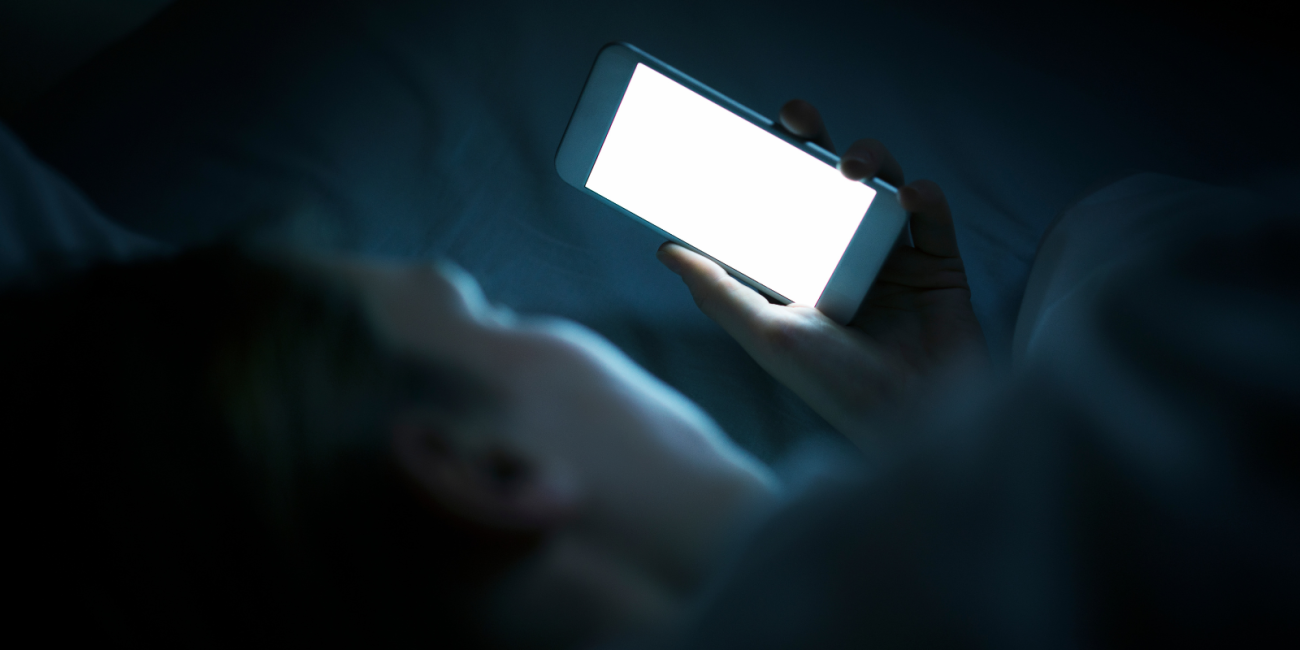
Is your phone the first and last thing you see each day?
If so, you’re not alone.
The majority of Brits (70%) start their day by checking their phones.
87% look at their phone or tablet within an hour of going to bed. And 74% keep their phone in their bedroom at night.
On average, people around the world spend 6 hours and 58 minutes looking at screens each day.
And why wouldn't they?
We live in the golden age of social media, and it's tempting to be constantly online. Whether it's to check new Instagram posts, watch strangers fight on Twitter, or discover yet another TikTok trend.
But how much does our relationship with our phones cost us?
Probably to no one's surprise, there's a plethora of studies that have proven that using your phone before bed is unhealthy, to say the least.
Are Phones the Enemy of a Good Night’s Sleep?
Our biological clock follows a 24-hour sleep-wake cycle called the circadian rhythm.
When the sun rises in the morning, our body produces cortisol, a hormone that makes us alert.
As the sun goes down, our bodies release another hormone, melatonin, which is responsible for the sleepy feeling we experience.
However, electronic devices that emit blue light, like our phones, have been shown to suppress the production of this all-important hormone.
This study found that people who used their phones for at least 8 hours per day were more likely to have trouble sleeping and sleep for shorter periods of time. The use of a mobile phone for at least 30 minutes after turning off the lights to go to bed, particularly without using a blue light filter, has been associated with several sleep issues. These include poor sleep quality, daytime tiredness, difficulty sleeping, and a longer time to fall asleep.
But our sleep takes a hit even by just keeping our phone close to us while we're sleeping. It can make us feel tired during the day, have trouble sleeping, and take longer to fall asleep, based on an analysis of 15 reports.
According to the Sleep Foundation, blue light stimulates parts of the brain that make us feel alert, raising our body temperature and heart rate.
During the day, blue light can help us stay focused, and it improves our performance and our attention span by regulating our circadian rhythms.
However, during the night, it can throw a wrench into our sleep.
And since the sun emits blue light too, a digital screen "essentially tricks the brain into thinking it’s daytime in the evening and suppresses the mechanisms that promote sleep,” according to Phillip Yuhas, assistant professor at the Ohio State University College of Optometry in Columbus.
Abundance of Information and Stress
Our phones are pocket-sized encyclopedias containing an endless stream of information. No wonder it's so difficult to resist the urge to see what's new.
Reading distressing news, watching a scary movie, or getting an annoying work email before bed or in the middle of the night can raise your cortisol levels. This stress hormone gives you a burst of energy that's hard to come down from.
"It's like eating a candy bar," according to Jamie Zeitzer, professor of psychiatry and behavioral sciences at Stanford University.
But even feel-good content can disrupt our sleep by increasing dopamine and norepinephrine levels in the brain. These neurotransmitters are involved in excitement and attention. They can make it harder for our brains to slow down and fall asleep.
"In order to be able to enjoy a good and restful sleep, one needs to feel safe and not worry about anything," notes Dr. Neil Stanley, in his 112 Sleep Tips.
Life Is All About Balance
In today's world, it's hard to imagine a life without the internet and our digital devices. They're essential for work, school, staying connected with friends and family, and entertainment. However, too much screen time can have a negative impact on our physical and mental health.
Adopting small but viable habits can help us prevent the negative effects of having our phones glued to us without depriving ourselves of all the fun. A simple but effective remedy is to get off our phones for 30 minutes before bed. It will help us sleep longer, better, and boost our mood and memory. We all love watching videos with cute animals, but it's important to know when it's time to put our phones down. We will all be thankful for a good night's sleep tomorrow morning.
Support Young Creators Like This One!
VoiceBox is a platform built to help young creators thrive. We believe that sharing thoughtful, high-quality content deserves pay even if your audience isn’t 100,000 strong.
But here's the thing: while you enjoy free content, our young contributors from all over the world are fairly compensated for their work. To keep this up, we need your help.
Will you join our community of supporters?
Your donation, no matter the size, makes a real difference. It allows us to:
- Compensate young creators for their work
- Maintain a safe, ad-free environment
- Continue providing high-quality, free content, including research reports and insights into youth issues
- Highlight youth voices and unique perspectives from cultures around the world
Your generosity fuels our mission! By supporting VoiceBox, you are directly supporting young people and showing that you value what they have to say.





